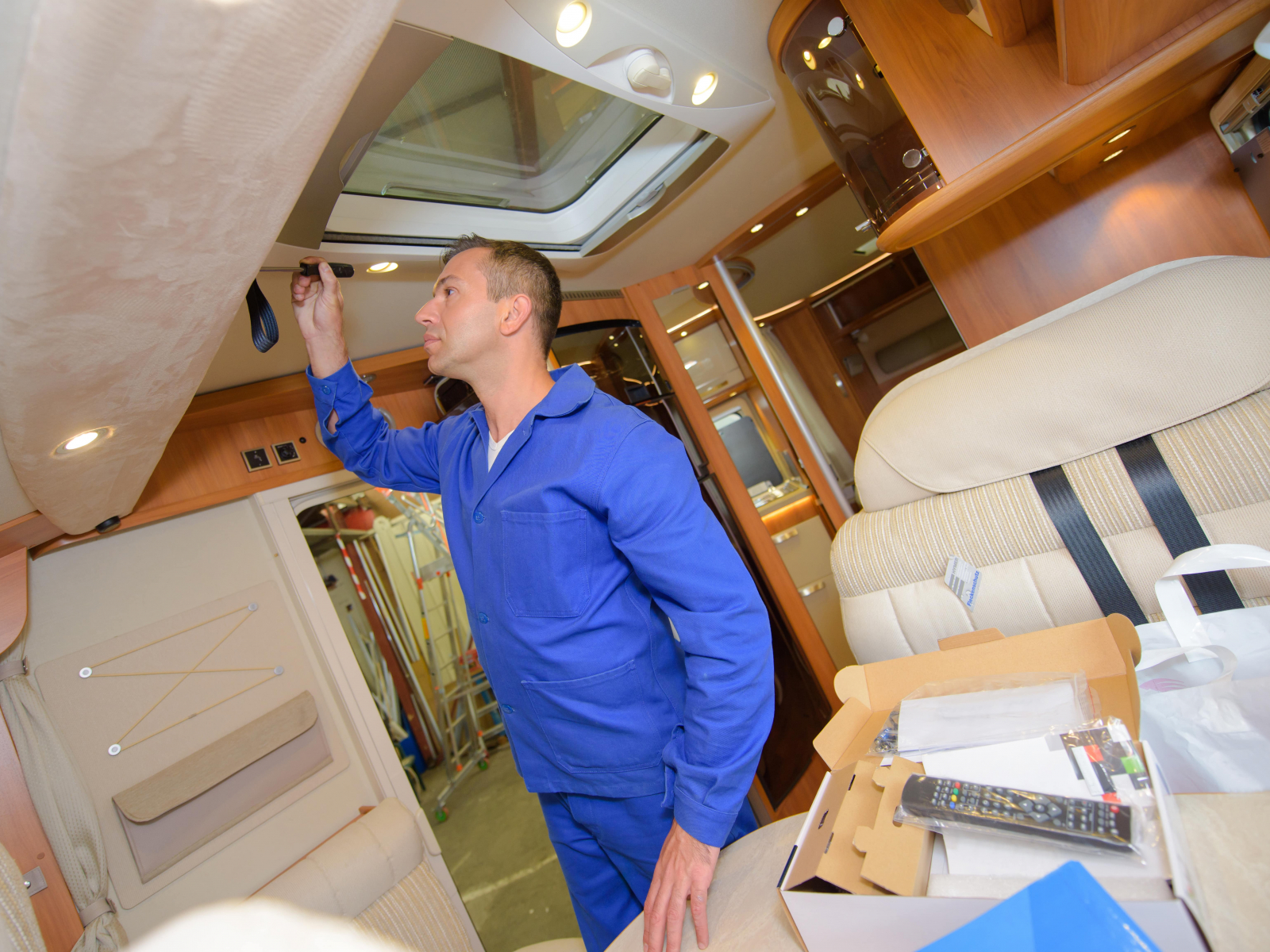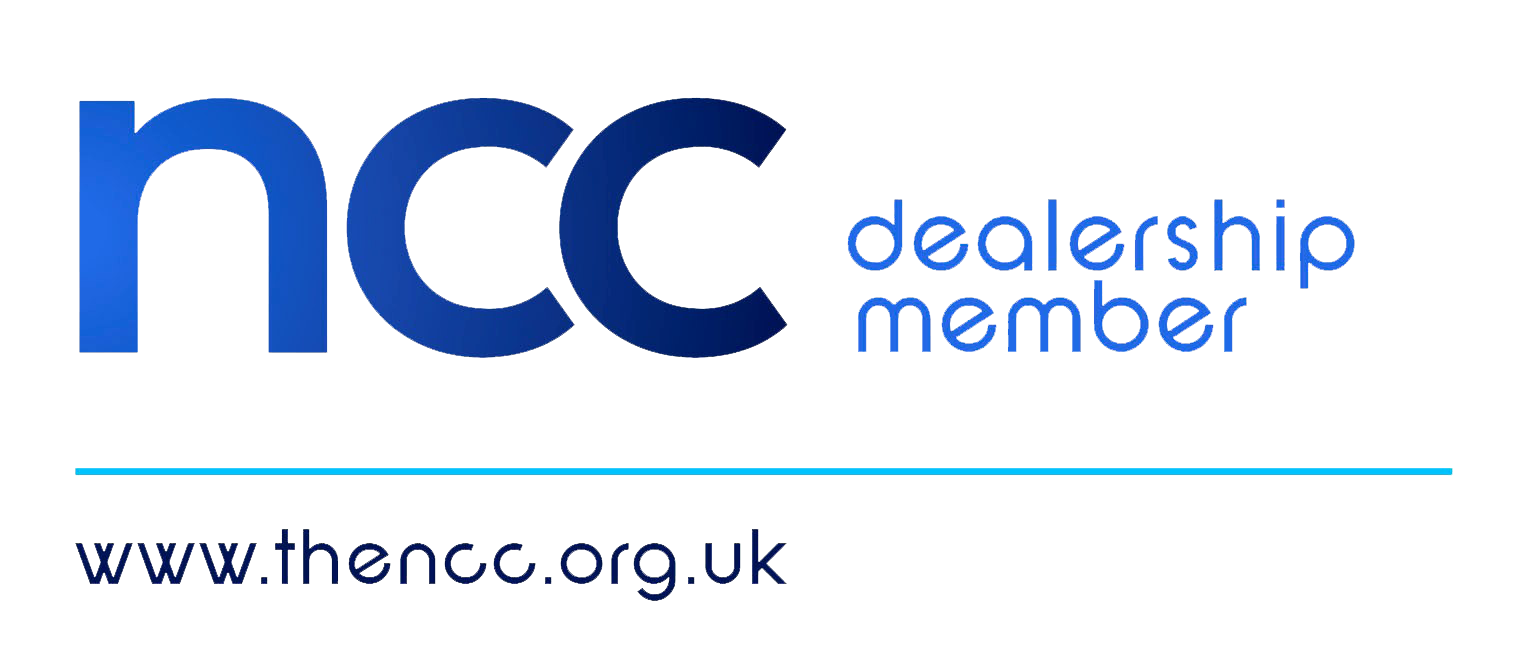248 caravans and motorhomes now in stock
All our stock is 70 point checked and prepared before sale
Explore our vehicle display in its tranquil 16 acre woodland site
The Ultimate Checklist for a Safe and Stress-Free Caravan Journey
Posted 14/11/2024
Author: Hellen Dimmock
Buying a caravan from Wandahome is one of the best things you can do to ensure you’ve got ‘freedom on tap’ – the ability to go on holiday when you choose. Next up, making sure your caravan is in top condition is one of the most important things you can do to have a safe and stress-free trip. The ultimate checklist in this edition of our blog will guide you through the key prep and safety checks you’ll need to do before setting off on your next adventure.
1. Tyres
Your caravan’s tyres are one of the most crucial safety components when towing. The wrong pressure or them being worn out can compromise your vehicle's handling and increase the risk of a blowout.
- Pressure: The tyre pressure should be right for both your towing vehicle and the caravan, as inflation that is over or under what it should be can cause instability and leads to excessive wear. It’s actually best to check the tyre pressure when they’re cold, ideally in the morning before driving.
- Condition: Inspect the tyres for any visible damage (cracks, bulges, excessive wear). If the tread is worn to the legal minimum or unevenly worn, it’s time to replace the tyres.
- Spare: Always carry a spare tyre for both the car and the caravan. Before every trip check that it's properly inflated and ready for use.
- Bearings: Check the wheel bearings for any signs of wear or damage. If you hear unusual noise when towing, it may be a sign that the bearings need attention.
If you’re unsure how to check your tyres or need assistance, why not book a service with Wandahome? An annual check can ensure your caravan is well looked after and road-ready.
2. Hitch
The hitch is a vital connection between your car and caravan, so making sure it’s secured probably is absolutely essential for a safe journey.
- Hitching up: Make sure the caravan is correctly hitched to the vehicle that’s towing it. The tow bar should be properly connected, and the safety chain or breakaway cable also be attached securely.
- Tow ball: Check that the tow ball is in good condition, clean and free from rust or debris. A damaged tow ball can mean that the connection is unsafe.
- Electrical: Check that the electrical plug (which connects your caravan’s lights to your towing vehicle) is working properly. Test indicators, brake lights and rear lights to make sure everything is in order.
- Stabiliser: If your caravan has a stabiliser, ensure it is engaged and functioning properly to reduce sway during travel.
3. Brakes
The braking system of both your car and caravan needs to be in top condition. Overloaded or poorly maintained brakes can drastically affect your ability to stop safely which, is why regular servicing is so essential.
- Car: Make sure the brakes on your car are working properly. If you notice any unusual noises get the brakes checked before you hit the road. Similarly, if brake fluid is low have the brakes checked.
- Caravan: The brakes of your caravan should also be checked. Most modern caravans have electric brakes activated through the towing vehicle’s brake system. Make sure they’re correctly calibrated and functioning properly.
- Breakaway: This safety feature is designed to apply the caravan's brakes in the event of an accidental detachment. Check the breakaway cable for signs of wear or damage and make sure it’s properly connected.
4. Load and weight
Overloading the caravan can cause serious issues - instability, poor handling and damage to the vehicle doing the towing. It’s really important to distribute load evenly to maintain balance and prevent excessive swaying.
- Maximum weight: Check the caravan’s maximum permitted weight and make sure you don’t exceed the limit. This includes the weight of personal items aboard, and any additional equipment you might be carrying.
- Load distribution: Weight should be, as best as it can be, evenly distributed across the caravan. Try to avoid placing heavy items at the rear of the caravan as this can cause fishtailing (i.e.. serious swaying) while driving. Ideally, heavier items should be put low and towards the centre of the caravan.
- Nose: The nose weight (ie. the force pressing down on the tow ball) should be within the recommended limits stated by the caravan’s manufacturer. Too much nose weight can cause the towing vehicle to become unstable, while the nose weight being too little can make the caravan sway.
5. Lights and indicators
Having working lights and indicators on both the caravan and towing vehicle is essential for safe driving, especially in low visibility conditions or at night.
- Lights: Test the brake lights, indicator lights, reversing lights and tail lights on both the car and caravan. A malfunctioning light can lead to problems on the road and increase the risk of an accident.
- Indicators: Make sure the caravan’s indicators are clearly visible and that the signals for turning left and right work as they’re intended to. Test them regularly throughout your journey.
- Fog lights and reflectors: Any additional lighting, including fog lights, should be checked to make sure it’s working correctly. Also, check reflectors on the back of the caravan to make sure they are clean and in place.

6. Fluids
Running out of essential fluids during a journey can cause major disruptions. Before you set off, make sure everything is topped up.
- Engine fluids: Check the oil, coolant, brake fluid and power steering fluid levels of your towing vehicle. Make sure there are no leaks and top up as necessary.
- Caravan water: If your caravan has a water system, ensure the tank is filled and the pipes are in good condition. It’s also a good idea to check that the water pump is working properly.
7. Emergency essentials
Emergencies can happen when you least expect them, so it’s very important to be fully prepared. Packing a well-stocked emergency kit can provide peace of mind.
- First aid kit: Always carry a well-stocked first aid kit in both your car and caravan. Make sure it contains basic supplies such as bandages, plasters, antiseptic wipes and any prescription medication you need.
- Tool kit: A small tool kit with essentials (screwdrivers, hammer, wrench, duct tape) can help with minor repairs on the road.
- Fire extinguisher: Having a working fire extinguisher aboard both your towing vehicle and caravan is an essential.
- Breakdown: Consider signing up for roadside assistance / breakdown cover, or ensure you have the number for a reliable service, just in case something goes wrong during your journey.
8. Interior
Before heading off, take some time to make sure your caravan’s interior is ready for the road. A secure and comfortable space will make all the difference on long journeys.
- Loose Items: Secure any loose items inside the caravan that could move around during travel as, if they do, they’ll cause damage or distract you from driving. Store things in cupboards where necessary.
- Gas: Check that the gas supply is turned off and the system is in good working order. Make sure there are no gas leaks before you set off on your trip.
- Water and waste: Check that the water and waste systems work properly. Empty the waste tanks and ensure all taps and plumbing are free from leaks.
9. Route
A little prep before hitting the road can save you time and stress.
- Weather: Check the forecast along your route and at your destination. Extreme weather can affect driving conditions and might mean changes to your plans.
- Restrictions: Some roads or routes may have restrictions on caravan access, including height limits. Research and plan routes carefully to avoid surprises.
- Fuel: Plan fuel stops along the route, especially if you're towing a large caravan, It may be that some petrol stations are not suitable for caravans.
By following the checklist we’ve given in this edition of the Wandahome blog, your caravan journey will be as safe, smooth and enjoyable as possible. And remember annual servicing is one easy way of keeping your caravan road worthy, so why not book in your annual caravan service today at Wandahome South Cave.





